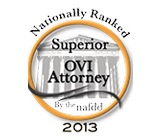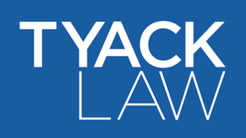
With the ongoing coronavirus (COVID-19) pandemic, there has been a shortage of personal protective equipment (PPE)—such as N95 respirator masks—available to hospitals and other medical entities across the country and the State of Ohio. With the growing shortage, Dave Yost, the Ohio Attorney General, has asserted that he will file civil lawsuits against persons who severely inflate the price of PPE, as well as household items—like toilet paper and hand sanitizer—that are now in high demand.
Yost’s office recently filed a lawsuit against a group of people accused of hoarding N-95 masks and selling them on eBay under the now-defunct user name “Donkey476” for nearly 18 times the retail price. The lawsuit is seeking a temporary restraining order against the eBay seller from selling these masks and requests that the Court ordered all remaining N-95 masks to be surrendered to the State of Ohio for reasonable compensation.
The lawsuit was filed as a violation of the Valentine Act, Ohio’s antitrust law. The Valentine Anti-Trust Act was implemented in Ohio in 1898 following a government investigation of price fixing amongst Ohio’s coal, insurance, railroad, and oil industries. The Valentine Anti-Trust Act prohibits price fixing, production limitation, and controlled sales.
According to the AG’s office, the Valentine Act gives it broad powers to protect the public and foster fair and honest interstate and intrastate competition by instituting actions against those who conspire to restrain trade and commerce or monopolize markets in Ohio. Thus, in the lawsuit, the AG’s office maintains that the hoarding of an item and the related increase in prices of that item constitute an unreasonable and unlawful restraint of trade, which is a violation of the Valentine Act.
The AG’s office also asserted in the lawsuit that “Donkey476” committed unfair or deceptive acts or practices in violation of Ohio’s Consumer Sales Practices Act (OCSPA) by offering goods for sale at prices substantially increased because of increased demand for the products caused by this national emergency.
While Ohio is one of the sixteen states that does not expressly prohibit price gouging, the OCSPA also bans unconscionable sales practices. Thus, a practice could be considered unconscionable if the business knew the sales price was substantially higher than normal or if prices of stock on the shelf were higher due to the pandemic. However, enforcing that law could be difficult, as the OCSPA does not expressly include price gouging in the definition of “unconscionable practices.” Thus, there can be a fine line between someone who is simply responding to the normal pricing—supply and demand—pressures of the market and a person who is price gouging. In response to this void, the AG’s office is working on language for a bill that would address the weakness in the existing laws that do not directly prohibit price gouging.
Consumer Law exists to protect consumers in transactions with businesses. Businesses often attempt to circumvent these laws to illegally profit from consumers, while consumers sometimes attempt to wrongfully sue businesses. Whether you are a consumer or a business, it is essential that you are aware of your rights. The Columbus, Ohio consumer protection lawyers at Tyack Law have extensive experience on both sides of these types of cases. Our Columbus consumer rights attorneys have worked to defend businesses and to advocate for consumers. This dual experience gives us an advantage in negotiations and in the courtroom.
To discuss your Ohio Consumer Sales Practices Act case as a plaintiff or defendant, you can contact one of our experienced Columbus civil attorneys at (614) 221-1342 or by emailing info@tyacklaw.com. Our attorneys are available to discuss OCSPA matters generally, or more specifically, your Ohio lawsuit involving price-gouging of PPE, toilet paper, or any other items.
Disclaimer: The information in this blog post (“post”) is provided for general informational purposes only, and may not reflect the current law in your jurisdiction. No information contained in this post should be construed as legal advice from the Tyack Law Firm Co., L.P.A., or the individual author, nor is it intended to be a substitute for legal counsel or representation on any subject matter. No reader of this post should act or refrain from acting on the basis of any information included in, or accessible through, this post without seeking the appropriate legal or other professional advice on the particular facts and circumstances at issue from a lawyer licensed in the recipient’s state, country, county, or other appropriate licensing jurisdiction.
Talk with an experienced Lawyer today
Fill out the form to get started with your case evaluation.













